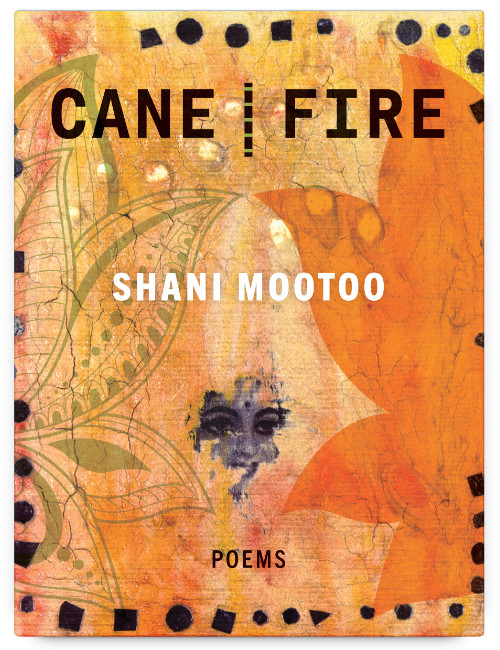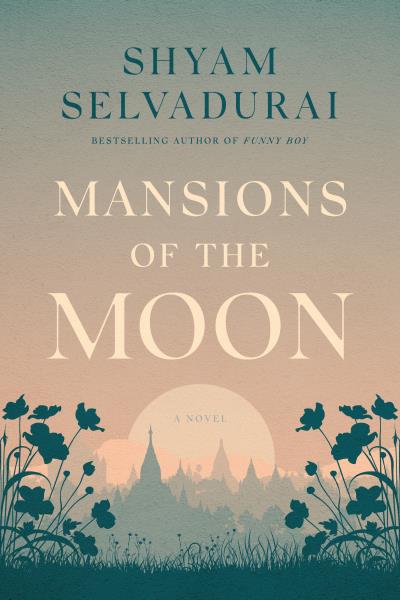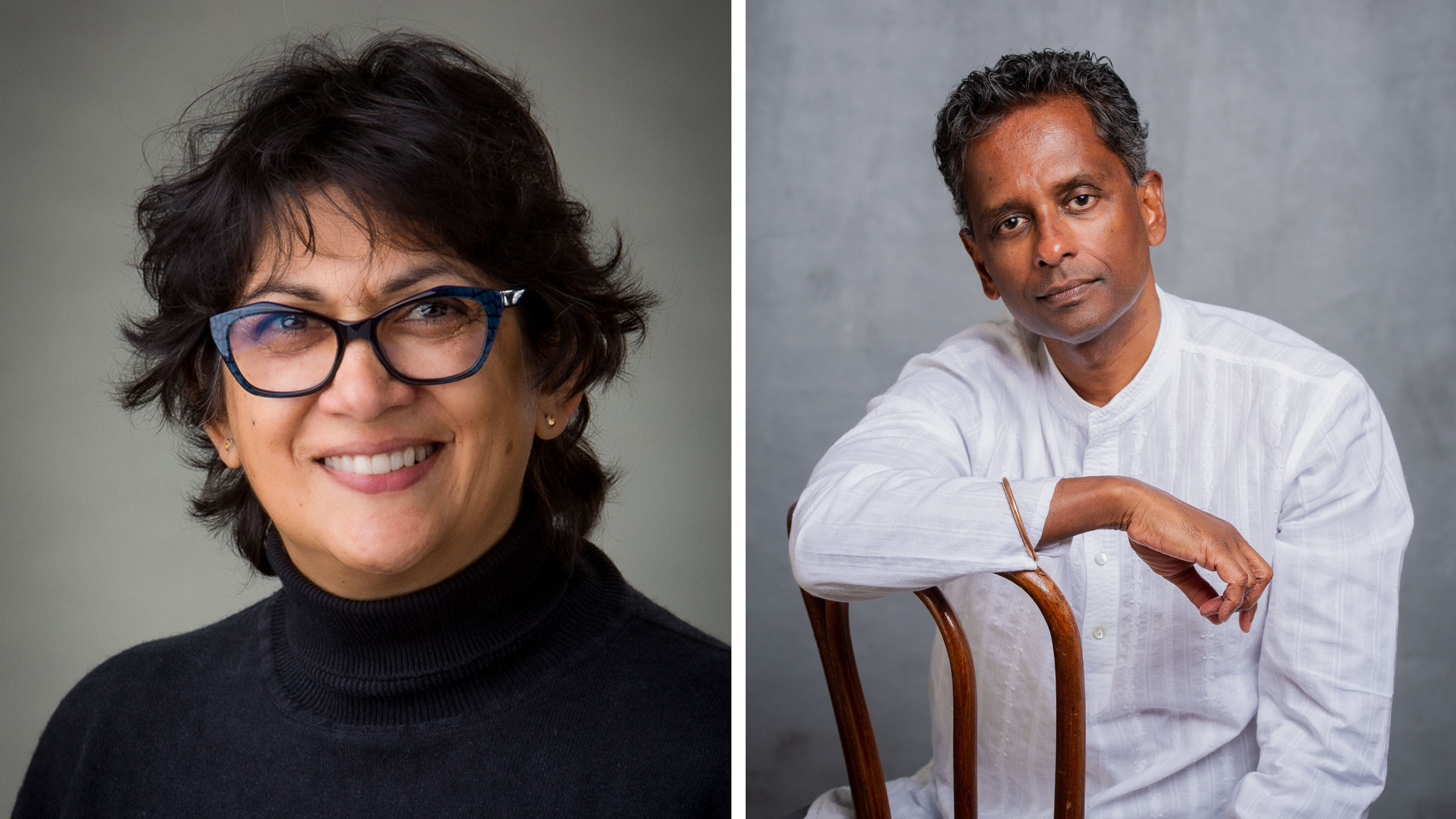Until the 1990s, there wasn’t a whole lot of literature that could be proudly filed under LGBTQ2S+. In Canada, especially, there was nothing resembling a critical mass of queer and trans novels, and very few written by queer and trans writers of colour. (Dionne Brand’s first novel, At the Full and Change of the Moon, was published in 1996, though she had published poetry and short stories since the 1970s; Tomson Highway’s Kiss of the Fur Queen wouldn’t hit the shelves until 1998, though his playwriting dates back to the 1980s.)

Credit: Courtesy of Book*hug Press
The publication of Shyam Selvadurai’s Funny Boy in 1994, and Shani Mootoo’s Cereus Blooms at Night in 1996 signalled if not a revolution, then a rethinking of who could get published—and who could get famous—in this country. Not only were they “serious” novels about LGBTQ2S+ lives, these two books were written by and about people of colour. Selvadurai grew up in Sri Lanka with a Sinhalese mother and a Tamil father who moved the family to Canada when he was 19; Mootoo, born in Ireland, grew up in Trinidad, with her family moving to Canada, also when she was 19. These were unapologetically queer Canadian books with an international outlook and global appeal.
Now, almost 30 years later, these two boundary-breakers each has a new book out: Mootoo’s Cane Fire is a vivid and entertaining collection of poetry (with a visual art component) that she describes as a something of a memoir, while Selvadurai’s Mansions of the Moon is a big, immersive historical novel focusing on Yasodhara, the woman who married the Buddha.

Credit: Courtesy of Knopf Canada
As if in the blink of an eye, they are no longer young upstarts, but mature artists. They’ve been nominated for prizes—and lost a few. Mootoo, who now lives in small-town Ontario, has written five books since Cereus Blooms, but has focused more on visual arts. Selvadurai, who now has six novels (and a couple of anthologies) to his name, co-wrote the 2020 film adaptation of Funny Boy with Deepa Mehta, who directed the coming-of-age story.
Xtra thought this was an ideal time to reunite the two old friends to talk about their new work, the changes they’ve seen in the LGBTQ2S+ arts community since they first became media darlings and how, at this moment in their careers, the long shadow of death informs their work.
Shyam: I think we became aware of each other even before we were writers. Right, Shani? It was through Desh Pardesh [a queer and South Asian cultural festival that ran in Toronto from 1988 to 2001]. That’s the first time I met you. You came as a video artist.
Mootoo: That’s right, yes. I wasn’t writing at that time.
Selvadurai: I was writing, but I hadn’t published anything. I was on the steering committee, and we invited you, so I think that’s how I first met you. What we should acknowledge is that we have this habit of meeting each other at festivals and whatnot. And then we have these long conversations, often lying on hotel beds. We have had so many private conversations, particularly about our lives, literature and art.
Mootoo: But our lives have gone in not only different directions, but to different cities. Those days [before same-sex marriage and so much cultural change including changing attitudes toward LGBTQ2S+ people], they’re coming more into focus for me now as an older person. Looking at the kind of work I’m doing now, which is very, very different than what I did in the past. In the days of Desh Pardesh, in that early work of film and video and painting, and the early writing, I was trying to insist not even on an identity, but on a presence in a Canadian art world that was somewhat hostile at the time to difference; difference being people of colour and voices that were not white, “known” Canadians. Desh Pardesh certainly gave this big, broad diasporic South Asian community from right around the world, including the Caribbean, where I’m from, some visibility and the possibility of a voice. My work at that time was that kind of insistence, but it probably wasn’t what I really wanted to do.
Selvadurai: I’m also of that age now where I’m looking back on that period of Desh Pardesh and wanting very much to write about it through the lens of fiction. But I don’t know how to do that yet. I’m thinking about it a lot because it was so formative to me as a young, queer South Asian person. It provided a place where I felt I had permission to be my whole self and insisting on my own complexity, and that I could then take that out from there into the mainstream. And I don’t know how I would have written Funny Boy if not for Desh Pardesh and talking to other South Asian young people who are queer. Everybody was very smart, and that smartness was something you weren’t supposed to have as a South Asian. There was a dumbing-down at some of the other South Asian festivals, which didn’t include much modernity. Because of its radical agenda it allowed a space for someone like me. I remember seeing that video you did of people going out into the wilderness. They were South Asian people, I think—not who you’d expect.
“When I came to Canada, I found that I had to announce myself and beg for permission to speak. I had to state over and over who I was.”
Mootoo: A Paddle and a Compass? [The 1992 short film explores the relationship to the natural environment as influenced by different cultural backgrounds.] They were a Sri Lankan family.
Selvadurai: I remember watching that and thinking how extraordinary it was to see it. Because it was something you were not supposed to be doing. I mean going out into the wilderness, that was the heritage of white people.
Mootoo: When I made that video with Wendy Oberlander, we were at the Banff Centre in a residency called Race and the Body Politic. And that was one of the first residencies where the majority of people were people of colour. I had been making art from the time I was a little child, and in Trinidad there was no need to insist on race. And of course, at the time I dared not speak about gender. And my desire was to make art that was about the things that I loved and wondered about—was curious about. When I came to Canada, I found that I had to announce myself and beg for permission to speak. I had to state over and over who I was. I don’t know if you remember the days of the Mountain Equipment Co-op catalogue, when there wasn’t a single person of colour in them, and you’d go into the mountains and you saw no people of colour. So, when Wendy and I began to make this video, it was basically about how she’s a white woman and I, you know, I am me. She had been all over the place, the kinds of places that I wanted to be able to go to but couldn’t imagine going. All those people had, as young people, travelled to Europe with their backpacks, and I had never done anything like that.
Selvadurai: What young BIPOC people can’t have today is that incredible feeling, sitting there with everyone else and there’s this film that has an innocence but also a startling tension. And you can’t say, “We’ll just watch it tomorrow on the internet.” There was just this temporality to it that was wonderful. We sound like two old people reminiscing about the good old days.
Mootoo: It’s an important history that’s not well known. The ride from there to here hasn’t been well documented, and I think that’s dangerous.
“I think because gay liberation has become so established in this country, there’s a freedom that I always wanted to write about, to be able to explore other areas.”
Selvadurai: You’re absolutely right. You see people acting like what’s happening now is brand new, but it isn’t brand new. It happened. There was an earlier wave. And you have to ask yourself, what happened on the way.
Mootoo: To appreciate the struggle, you have to appreciate the people who struggled, and build on it. What we didn’t do well enough, the young people have to do it now.
Selvadurai: I think because gay liberation has become so established in this country—I know things are going backward in the United States—there’s a freedom that I always wanted to write about, to be able to explore other areas. I don’t really feel any more the burden of representation. I have moved forward. This new book is about the Buddha’s wife. It’s not a question of whether writing non-queer stuff is better or that you’ve arrived. It’s about the freedom to do something else without the burden of representation.
Mootoo: I don’t know how it is possible to ever not worry about it entirely, Shyam. I live in a small town where there’s a great deal of tolerance, but also a great deal of people not knowing how to deal with gay and lesbian people; not knowing how to deal with people of colour. Also, I come from a place, Trinidad, where queer rights are not established, where people are still fighting for those rights. So while I have the privileges of the big cities where I’ve lived in Canada, my heart is still very much in those places where that is still a struggle. I never really wanted to be any one thing. I never wanted to be a lesbian alone or a person of colour alone. There are so many other ways I wanted to live my life and that has probably been more of my struggle than anything else. Yet in all of my work, all of who I am, including being of colour and the gender stuff—it’s all right there. I made the decision from the earliest work, Cereus Blooms at Night, not to go announcing and pleading, but to have it be central, not on the edge, but central. I’ve maintained that. I’m looking back now. Cane Fire is a lot more like a memoir, but so much of my life is out there in public that at this point I can take the memoir material and leave things out because they exist somewhere, and I can create myself for the kind of memoir I want. The hard struggle for visibility is not in Cane Fire. It’s known in other ways. Can I ask you a question?
Selvadurai: Of course.
“I found myself not alarmed by what might be considered a very brave feminist take on your part, but I was touched by your compassion and even daring.”
Mootoo: Mansions of the Moon takes on a world religion, the genesis, as it were, of Siddhartha, Buddha’s yearning for enlightenment. This huge story has been taken on a thousand times over. But that’s not your story. It’s about Siddhartha’s wife, Yasodhara, the abandoned wife of the Buddha, a necessary abandonment by him because such ties were seen as impediments to attaining enlightenment. Her plight is the story of your book. I say “plight” because one gets the impression from her story that she has been caused great suffering. He abandoned her and the child and his responsibility for the entire kingdom in search of his own enlightenment, which comes at immense cost to his family. As a Buddhist, I found myself not alarmed by what might be considered a very brave feminist take on your part, but I was touched by your compassion and even daring. It made me very pensive about the cost to others of the dogged attainment of our noblest dreams. And I wanted to know what interested you in writing Yasodhara’s life. Given that you’re from a primarily Buddhist country, Sri Lanka, how do you imagine Mansions of the Moon will play out in a place like that?
Selvadurai: Shani, I don’t really know. That’s an interesting thing because Sri Lanka always surprises me in its response to my work. I just wrote it in a way that I could justify it. And no matter what people say there—and I think there probably will be a multiplicity of responses to it—I know clearly what I’ve done and that’s the only way for me to go forward with the book. The fact that this is such a Buddhist story, even in its trajectory, gave me a sense of comfort in doing the work. I also have a way of shutting all that out when I want to do a project. When I wrote Funny Boy, it was crazy. There was nobody out in Sri Lanka who was gay, and here I was writing this book and I was going to have to say I was gay in public. I did it in that old “getting through high school” way of having tunnel vision, having your blinkers on as survival mechanism as a queer person. So, yes, I’m aware of these reactions and possible negative reactions, but I also really have this ability to cut it out and focus on the work. But Sri Lanka always surprises me. Just when I say “This will never happen,” it happens. I thought the film Funny Boy would never be shown in Sri Lanka—never. But lo and behold, it’s played in the cinemas in a country in which it’s still illegal to be gay. I can’t explain it.
Mootoo: Did you write your new novel after making the film of Funny Boy or during?
Selvadurai: During.
Mootoo: The reason that I ask is because it is extremely visual in a way that I didn’t find Cinnamon Gardens, The Hungry Ghosts or even Funny Boy. It’s a film just as it is. And I was wondering if the filmmaking influenced your storytelling mind.
Selvadurai: What doing the Funny Boy screenplay taught me were the incredible advantages of the novel. How a novel could do so much more than a screenplay. I just embraced even more the things that are the strength of the novel, which is point of view, and the ability to turn a plot or a scene on a line or on a semicolon. The visual aspect of it comes from two things. I need for the reader to feel entrenched in this world and not do it like I’m presenting historical information. Of course, I’m conscious that this is 600 B.C., in India, so it’s a very foreign world—it’s a foreign world to an Indian. The other thing is I am wondering if you’re reacting to my technique as a writer. Definitely, craft allows me to do that.
“We’re not writing in the same vein as, say, Vivek Shraya, who is in that second or third wave of identity politics.”
Mootoo: The book really struck me in the depth and in the way that a reader could be taken so far away. And I remember you, in an interview some time ago, speaking about Funny Boy coming out of the first wave of identity politics. And I wondered what wave this is that you and I are now in, in the trajectory of our lives. I wonder if this freedom is a freedom that’s making us better writers. I feel Polar Vortex [2020] took a leap and that Cane Fire has also taken a huge leap. We’re not writing in the same vein as, say, Vivek Shraya, who is in that second or third wave of identity politics. What is it we have left behind and what are we moving toward? Mansions of Moon has gone far beyond our personal stories, yet it’s still a queer story.
Selvadurai: It’s very queer. I want to turn that same question on you. I think it’s partly just age, living longer in the world and having new concerns now that young people don’t have, like death. You and I are both in long-term relationships, and somewhere in our minds we know that one of us will abandon the other to death. It’s terrible, but it brings a presence and a tenderness into the relationship. It also brings a presence and tenderness into long-term friendships and into your relationship with your parents. It is the work of more mature people. I see that in Cane Fire, which is reckoning with people from your past, but it’s not the same reckoning. There’s so much love in Cane Fire, a poignant love for your parents. I wanted to ask you about this leap.
Mootoo: Just before you said the word “death,” I was thinking about that very thing. In the last three years, I had not been well, and during the time I was writing this—in fact, writing Cane Fire practically saved me. Because I was so ill, there was nothing else I could do but drag myself to the computer, sit there and write and then get back into the bed. It was a journey in itself. That focuses your mind—not being sure what the future will bring. When I wrote Cereus Blooms at Night, my parents were horrified they had a child who was lesbian, though they wouldn’t use that word. And a child who put this stuff out in public. But my father was encouraged to read the book by someone he respected a great deal. And he called me and he said, “We don’t see eye to eye, but do not stop writing, and write whatever you want. Don’t censor yourself.” Those are very, very fine words. But the journey from then till now with the family, and the truth of those words, took a long, long time. These days, my siblings and my father want to know everything I do; they want to come and cheer me on at events. The combination of getting older and having my family see me has been so thrilling. My niece and her husband came to the event that was held for me at Western University, when they gave me the honourary degree last year. And that was, like, the biggest thing in the family. The whole family wanted to come from England and Trinidad to this thing where I was allowed to bring two people. That kind of support gives me a great deal of freedom. And it allows me to write about Frankie the dog, for instance, and to openly write that poem about my partner [“We’d Always Intended to Test the Well Water”] that wonders: if you die first, how am I going to carry on? I can be quite open about that.
“The presence of death can go two ways: you can absolutely freak out and run off with somebody who’s 20 and get an expensive car, or you can feel grateful for what you have and enjoy it.”
Selvadurai: The presence of death can go two ways: you can absolutely freak out and run off with somebody who’s 20 and get an expensive car, or you can feel grateful for what you have and enjoy it. I think that’s in your work. It can be playful, but there’s also an urgency to it.
Mootoo: Yes, yes, yes, the word urgency. We may both have 30 or 40 or more years ahead of us, but having that experience last year really scared me. One of the things your book did for me—you could laugh at it but it was serious for me—was to see Siddhartha put on his rings and his earrings and his scarf and to come home and take them off and put them on the dresser. Living in this female body, but not feeling very female—however, I love my jewellery and there’s this conflict of putting jewellery on this body because it feminizes you. That’s always been a conundrum for me. But one of the reasons I can say it’s a queer book is because it allows for queer desire, for queer reading. And I know I can wear my pearls and not be a little lady by wearing them. I don’t know if you know what I mean by that. We see the pictures of the maharajas with their jewellery, sure, but to have it written about with nothing made out of it.
Selvadurai: I had read this book, Infinite Variety: A History of Desire in India, by Madhavi Menon, which is a game-changer as a queer South Asian person because she took this whole idea of queer identity and turned it on its head, looking at it from a South Asian perspective. It made me realize how much of what we consider identity is Western queer identity. One thing that’s in the book is that until quite recently in India, men and women wore the same clothing, and that there wasn’t this distinction of clothing—if somebody was coming down the street, you couldn’t tell if they were a man or a woman until they got closer.
Mootoo: You had Yasodhara wear a dhoti. I had not heard of women wearing a dhoti before.
Selvadurai: Everybody wore the same thing, the same dhoti, the same jewellery, the same shawls. There was no pink and blue, girls’ colours and girls’ jewellery. It was the same thing. I find it rewarding that you picked up on that. It’s just technique.
Mootoo: Very good technique.
This interview has been edited for length and clarity.



 Why you can trust Xtra
Why you can trust Xtra


